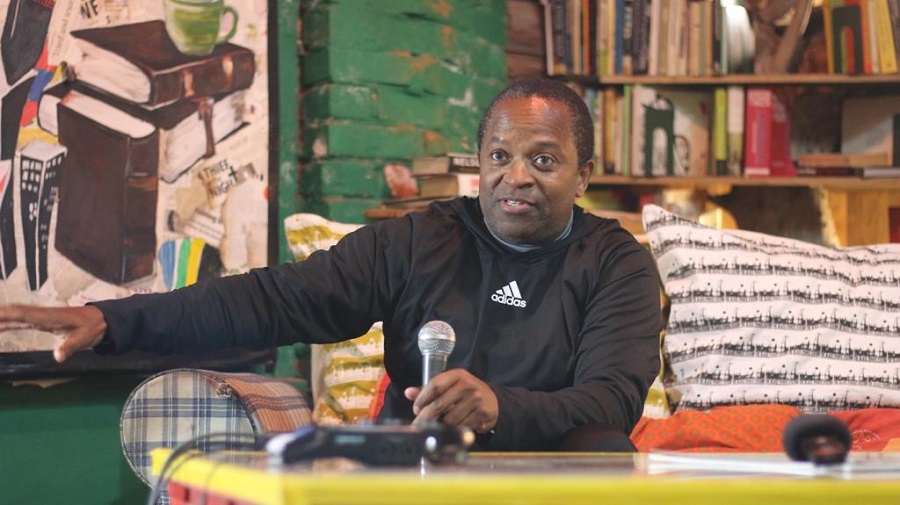By Benny Mojela
On 12 September 2023, exactly 46 years after Steve Biko was murdered in detention by Apartheid police, The Black Power Station (TBPS) hosted a discussion on freedom, justice, and the new politics of gender and religious equality, unpacking the legacies of injustice and the future, the meaning of Ubuntu, and the conflicts of these concepts within the legal system.
The discussion was led by Attorney Basil Andrew Williams, a senior legal practitioner in Makhanda who represented over 40 students who were arrested during the Fees Must Fall movement because he believed they were fighting for a good cause. There is a unique tradition that promotes reading and critical thinking at the TBPS. Similar to a church service which is opened with prayer, intellectual discussions at TBPS are commenced with a reading from a book, where the person reading opens the book to a random page and reads to their heart’s content. The reader can do an exposition of what they have read with contributions from the audience.
Tlotliso Ranthimo read from Steve Biko’s “I Write What I like” and he expressed how he thought the title was audacious and he liked it. LLB student Leasha Sanyika read from Section 36 of the Constitution known as the limitation clause. The limitation clause lays down a test that any limitation must meet. The two main concepts in this test are reasonableness and proportionality. Sanyika spoke on the complex relationship between justice and law.
”The definition that was given for justice was about the law and how it’s applied. I found that interesting because when we did jurisprudence we spoke about who defines justice. A murderer can walk away if there is no evidence because everyone deserves a fair trial but what about the family of the person who was murdered – do they get justice?” Sanyika asked.
Advocate Akhona Sidlai defined justice, saying, “Justice is the ethical, philosophical idea that people are to be treated impartially, fairly, properly, and reasonably by the law”. She referred to a poem by Chris Van Wyk titled ‘In Detention’, a satirical work meant to expose the unreasonable behavior of the police in Apartheid South Africa. Sidlai posed a critical question as to whether the law can achieve that philosophical ideal, especially in South Africa where laws still exist that were passed before democracy.
Advocate Basil Andrew Williams highlighted that the law is meant to bring about justice but in practice, it’s this does not always happen. ”This is why I am passionate about social justice. I believe that apart from Steve Biko there are many other people who were incarcerated during that time who never got justice, baninzi” he said.
Biko was the 21st person to die in a South African prison within 12 months, and the 46th political detainee to die during interrogation after the Apartheid government introduced the laws that permitted imprisonment without trial in 1963.
Williams highlighted that three critical historical words are missing from the South African constitution – slavery, racism, and apartheid. Instead, the Constitution vaguely refers to the injustices of the past without acknowledging them.
According to the CEO of the TBPS, Xolile Madinda, they plan on hosting more discussions around justice, Ubuntu, and the law.
**CORRECTIONS: Mr Basil Andrew Williams is an attorney and not an advocate, as indicated at the time of publishing this article.


